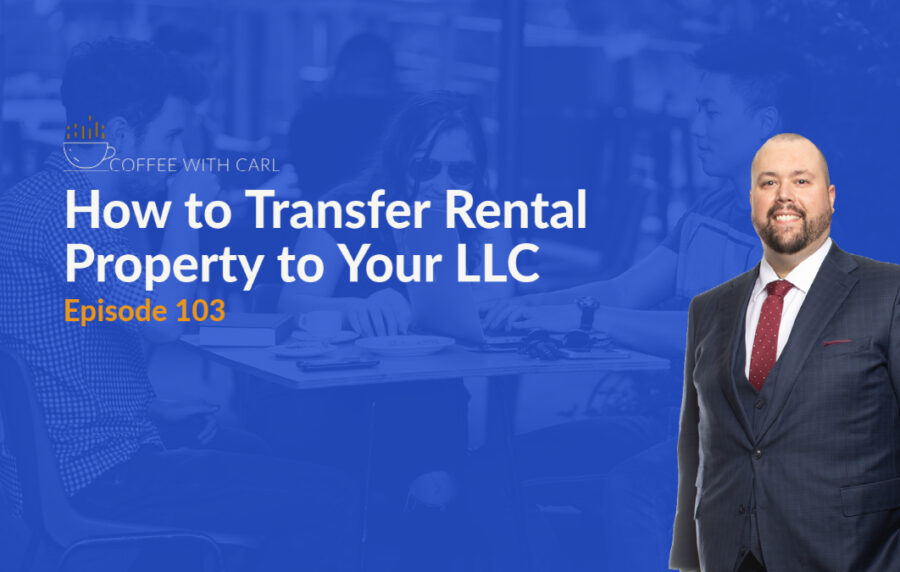When should you transfer a rental property to an LLC?
In this episode of Coffee with Carl, Carl Zoellner, Esq. explains the process behind transferring rentals to LLCs and whether or not you should consider doing so.
So, you’ve got a property in your name, and after hearing horror stories about what could go wrong with that, you’re looking at transferring it over to an LLC.
For my real estate investors out there, especially for our long-time clients, there’s always a little bit of confusion because we tend to gloss over or use phrasing like we’ll put that property in an LLC, land trust, things like that.
When we’re talking about real property or real estate, and we say “put the property in,” usually the most common scenarios we’re referencing are land trusts, Wyoming statutory trusts, LLCs, and potentially your corporation.
Defining the Act of “PUT IN” LLC
The act of “put in” means having that property deeded to one of those business entities. When we start talking about placing a property in or “put it” into the LLC, we’re just saying “deed to.”
Side note, does Anderson do deeds? Yes, we do.
For the advice I often give most of my clients, using a local title company will often be quicker and cheaper. Also, if you’re going to need to file a lien or a deed of trust, that local title company is going to be the one to help you with that as well.
It’s best to start establishing those relationships where you have properties so that you have an easier time when you need to file, put a lien on a property, or have a deed done. There’s an existing relationship there.
Usually, if there’s an existing relationship, it’s very reasonable, from a price perspective, to have those deeds recorded. One of those things that often comes up, which we tend to gloss over, is by “put into,” whether it be an LLC, land trust, Wyoming statutory trust, we mean deed from your name.
One other thing we like to discuss as well, in regards to transferring property, is the potential of the due on sale clause.
For the most part, as long as the mortgage is current, due on sale issues aren’t a concern–as far as transferring your property, even an investment property, to an LLC, trust, or otherwise.
The Takeaway
The critical piece here, make sure the mortgage is current, and you can do the transfer. As always, though, if you’re a client, you have questions about this, we would encourage you to reach out first so we can discuss the steps, so you are least likely to have an issue if and when you need to transfer a property.
As far as transferring property, remember that just means getting a deed done. Until next time, I want to thank everybody for joining us for another episode of Coffee with Carl.
As always, please keep taking advantage of all of our free content out there. If you’re enjoying what we’re doing, make sure you’re sharing with a friend, subscribing, doing all that good stuff that we do on YouTube. Thanks again for everybody joining, and we will catch you on the next episode of Coffee with Carl. Thanks, everyone.
If you’d like to speak to someone about your specific investment strategy and how to make sure you’re operating your investments as efficiently and profitably as possible, I highly recommend taking advantage of a FREE Strategy Session with one of our Senior Advisors.
Resources mentioned in this video:
- Catch more great investing & business tips on our YouTube channel
- Build your customized strategy with a complimentary Strategy Session today
Got an idea for a future Coffee with Carl? Send it to Carl at cwc@andersonadvisors.com.











